Kamala Harris and Alpha Kappa Alpha: Black sorority was a source for life lessons, sisterhood
Kamala Harris was the unflappable Alpha Kappa Alpha line sister.
When the line had to rush to put on black coats for a group task, everyone frantically grabbed a coat, even if it belonged to another sister. Harris always managed to grab her own.
When it was time to put together a routine for a Black History Month program with little time to prepare, Harris choreographed it.
"She did not waver in the storm, ever," said Jill Louis, who was among the 38 women initiated into Alpha Kappa Alpha Sorority Inc. with Harris in 1986 at Howard University in Washington, D.C. "When things were the most pressured, she was focused."
So it was no surprise to Louis and the other line sisters when Harris announced she was running for president in 2020.
Her sorority sisters say Harris was born to lead, and she got some of her earliest training as an Alpha Kappa Alpha woman at Howard.
Now the sorority is proving to be a secret weapon for Harris, as members across the country host fundraisers, show up to her appearances in the sorority colors of pink and green, and campaign for her election.
"Membership has its privileges," said Daphne Rankin, another Harris line sister. “If a soror has a need, she can always lean on the sorority and we will answer."
Harris will be the first black woman to to win a major party nomination if she succeeds in the primary. And the black vote, particularly black women who overwhelming support Democratic candidates, will be critical for Democrats in 2020. In 2018, 92% of black women voted for Democrats, according to the Pew Research Center. Meanwhile, issues of equality and diversity could be especially key with President Donald Trump being painted as a racist by his critics, including Harris.
Harris, 54, surged in the polls after a strong performance in the first Democratic primary debate last month. It arguably secured her status as a top contender in a Democratic 2020 field of two dozen candidates.
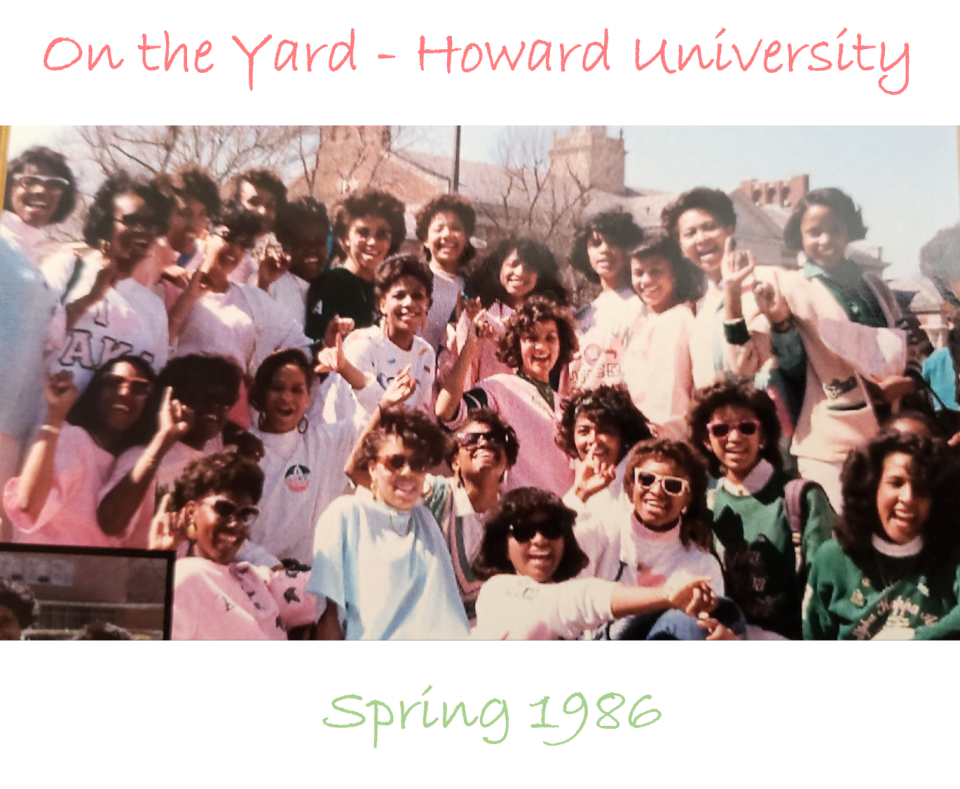
During the debate, Harris had a powerful exchange with former Vice President Joe Biden, where she called out Biden for opposing federally mandated busing to integrate schools while he was in Congress.
Sorority sisters say Harris' ability to remain calm and think clearly has benefited Harris throughout her career in politics as the district attorney of San Francisco, attorney general of California and United States senator. Harris also boasts a track record of fighting for marriage equality, prosecuting transnational gangs, helping families avoid foreclosure and supporting affordable healthcare.
However, Harris has been criticized for her record on criminal justice reform, an issue that disproportionately affects many black families. For example, some critics say Harris was too harsh when as attorney general she championed a truancy law that punished parents whose kids habitually missed school.
Political analysts say the support from sorority members could help Harris secure the votes of black women.
"Having black women as spokespeople to support your polices and agenda is useful when trying to engage black women at large," said Danyelle Solomon, the vice president of race and ethnicity policy at the Center for American Progress, a Washington D.C.-based liberal policy nonprofit. "But I also think that a candidate has to put forward policies that are actually responsive to that community at large."
Shaping leaders
AKA, an international organization made up of 300,000 college-educated women, has prided itself on shaping leaders like Harris who can affect change.
It is the oldest Greek-letter organization established by black college-educated women and has more than 1,200 undergraduate and graduate chapters around the world. The sorority was founded in 1908 at Howard University.
A growing list of prominent, successful women – including Jada Pinkett-Smith, Phylicia Rashad and Toni Morrison – are members of AKA.
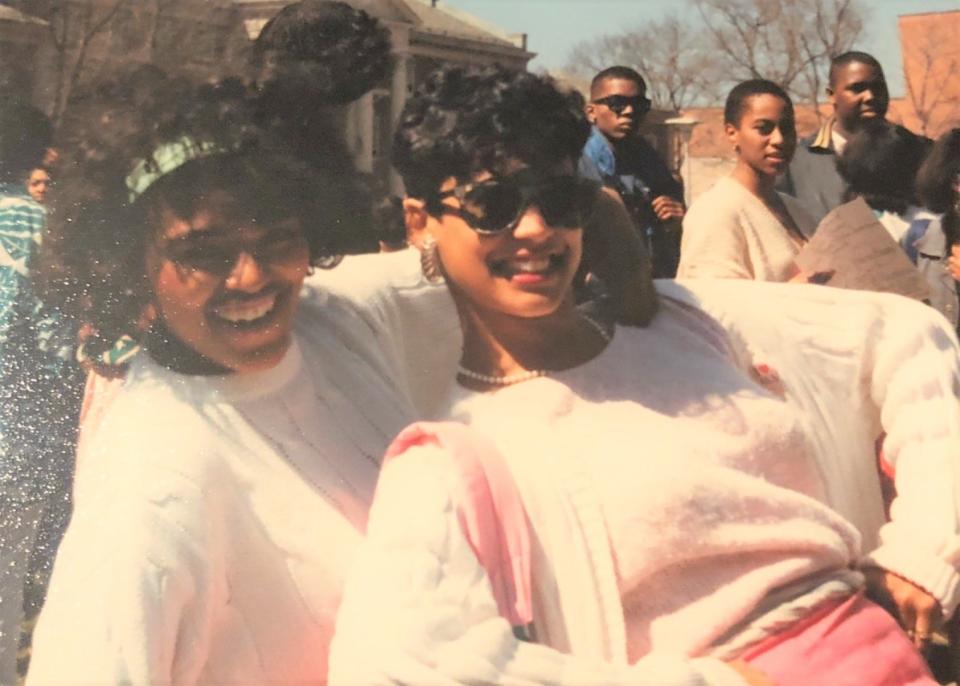
While sororities and fraternities span across all cultures, they are a staple in campus life for Historically Black Colleges and Universities such as Howard.
AKA is also part of the National Pan-Hellenic Council, also known as the Divine Nine, an umbrella organization for nine black Greek sororities and fraternities that all strive for academic excellence and service to communities.
On Harris' line alone, there are 10 attorneys, a sitting judge, a doctor and a dentist. Two line sisters have passed away since the group was initiated. A "line" is a group or class that is initiated into a sorority or fraternity together.
"Throughout your life, you find friends who become family and – like family – they help shape you and your life experiences," Harris said in a statement to USA TODAY. "For me, that was the women of Alpha Kappa Alpha Sorority, Inc. who became my sisters."
Harris' was born to an Indian mother and a Jamaican father. She grew up in Oakland, California, and lived with her mother in Montreal, Canada, before attending Howard.
Harris said there were times in her career when she was the only person in the room "who looked like me, or had my experiences."
Alpha Kappa Alpha and the Divine Nine network allowed Harris to meet other people with similar experiences, she said.
"Having my AKA sisters behind me, seeing them at events across the country, is a reminder to me as I run for president, because I know if I’m not on the stage, there’s a certain voice that will not be present on that stage, a voice that must be heard," Harris said.
Cynthia Howell, executive director of Alpha Kappa Alpha Sorority Inc., said the organization celebrates members who are serving their communities and holding public office, but it does not endorse political candidates.
A lifelong sisterhood
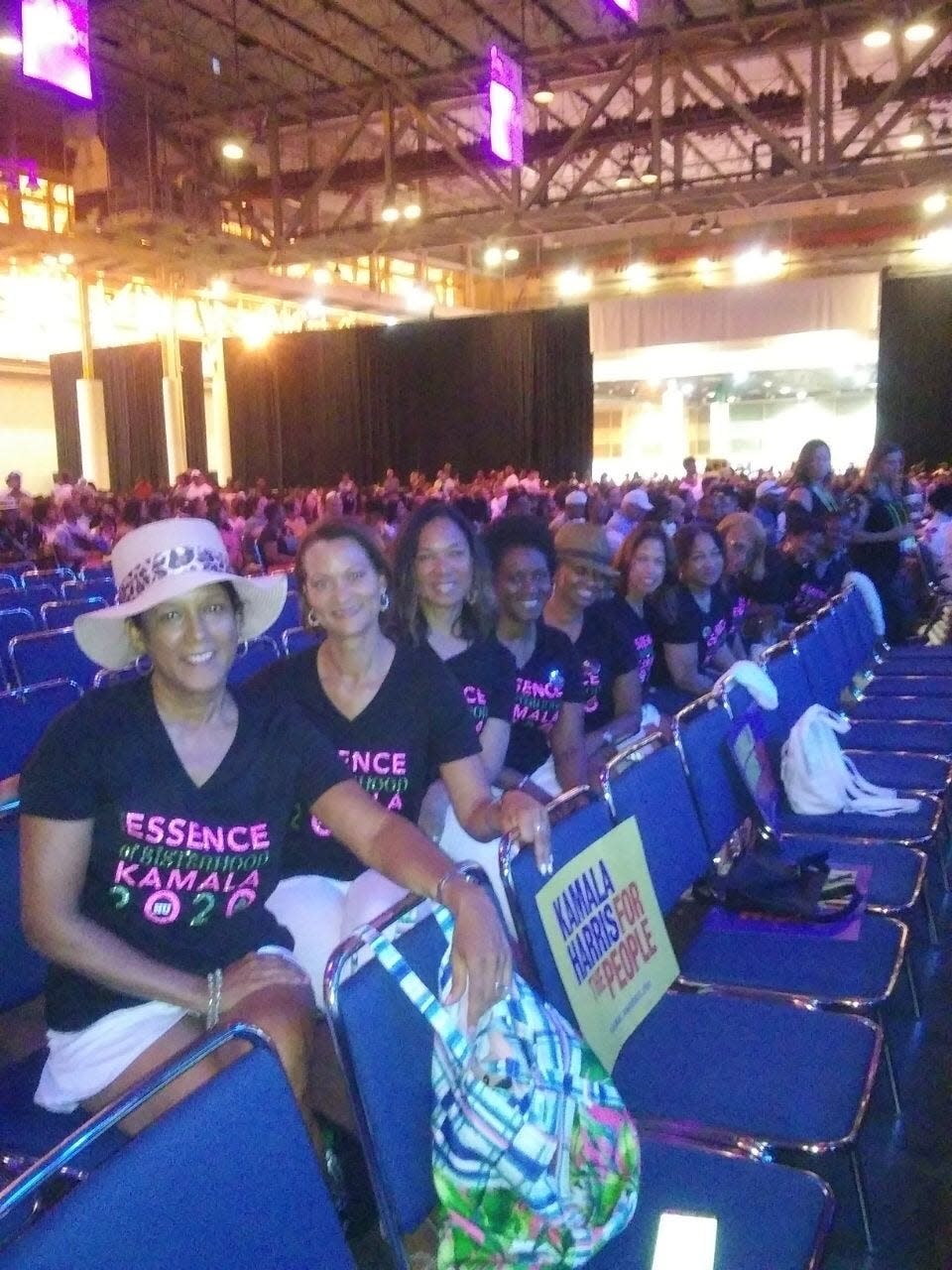
Harris was a senior when her line was initiated in 1986, so she had less than a semester on campus with her sorority sisters.
She was number 15 on the line, which was named 38 J.O.I.S., for Jewels of Iridescent Splendor.
The line sisters brought different talents and experience to the group. Harris had served on the Liberal Arts Student Council after winning the seat her freshman year.
The line has remained close over the years with annual girls trips and meeting up at Howard's homecoming festivities every year.
A group of line sisters traveled to New Orleans earlier this month for the Essence Festival, where they attended Harris' appearance wearing matching T-shirts that read "Essence of Sisterhood Kamala 2020."
"We really are like sisters," said Rankin, a paralegal and minister in Memphis. "We send Christmas cards. We keep in touch. We have a group chat. We know what’s going on in everybody’s life."
Harris' line sisters say they didn't think twice about supporting her run for president.
With members of the line living in different cities across the country, they have been able to cast a wide net with their fundraising efforts.
They have hosted fundraisers in Atlanta, Dallas, Washington and Memphis this year. Sorority members beyond Harris' line have supported their efforts.
Louis said most Alpha Kappa Alpha women are already leaders in their communities and have professional networks, so organizing campaign fundraisers comes naturally.
"We aren’t people who just go to work and come home," Louis said.
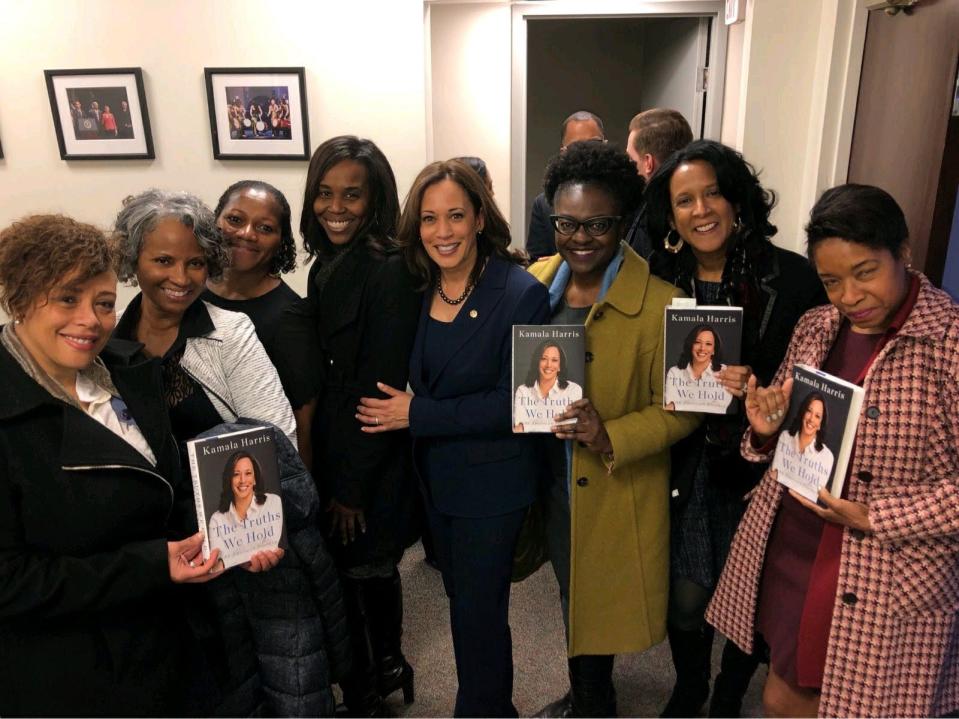
Service to all mankind
Louis, a Dallas-based attorney, said she was first drawn to AKA at Howard because the women were confident and respectable. She saw sorority members serving the community and working to make a difference in world events.
After initiation, the line sisters held a fundraiser that allowed them to donate $5,000 to Africare – which works to improve the quality of life for people in Africa – and another $5,000 to a D.C.-based nonprofit that served the homeless.
Harris, Louis said, has carried the sorority's values with her throughout her career in her fight for equality and improving the lives of her constituents.
“She is truly an example of what it looks like and what we are capable of if we stay faithful to our ideals of excellence and service," Louis said.
Harris' line sisters say they also see the same characteristics in Harris today that they did in college.
During the debate, Harris brought order to the stage when her opponents were shouting over each other. "Hey guys, you know what, America does not want to witness a food fight, they want to know how we're going to put food on the table," Harris said at the debate.
Lorri Saddler Rice, another line sister, said Harris was that same voice of reason for their line.
"She's the same calm, collected person who says 'yes, let’s get back to the issues, how do we move this mountain?'" said Rice, who is the associate vice president and dean of undergraduate admissions at Clark Atlanta University, a historically black university in Atlanta.
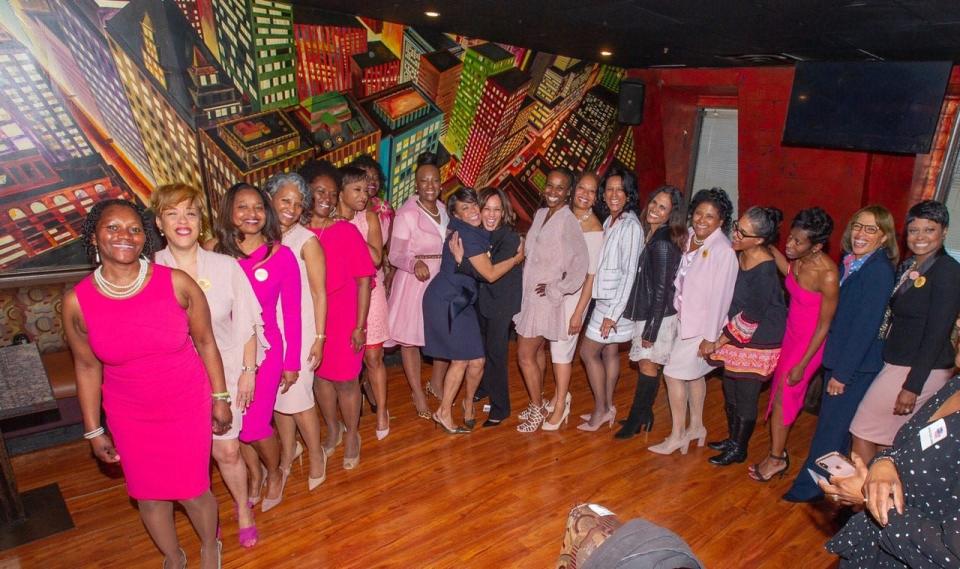
Rice said being a sorority member makes Harris more relatable to some voters – particularly those who went to college and experienced Greek life.
"It adds to her personhood," Rice said. "Sometimes with candidates … they may seem like they are so distant from the common person. But having gone to an HBCU, being in a sorority, those are things that are relatable to a lot of people.”
Kelsey Curtis, an AKA member and a rising senior at Howard, said Harris' run for president and being the second black woman to serve in the U.S. Senate has been an inspiration for her.
It's also showing the nation the strength of AKA with so many sorority members rallying behind her, Curtis said.
"I know that since she came before me, I’m going to have the capability and the platform to do the same," said Curtis, a marketing major who is currently interning at American Express in New York. "Anywhere I go, I know I have somebody on my side.”
Sorority members said their efforts will be crucial to helping Harris get elected next year.
“I think she’s a voice for a community of people that now with the support of the sorority behind her is an even stronger voice," Rice said.
Editor's note: Nicquel Terry Ellis is a member of Alpha Kappa Alpha Sorority Inc.

This article originally appeared on USA TODAY: Can Kamala Harris secure the black vote with help from her sorority?
